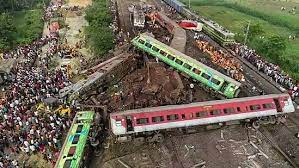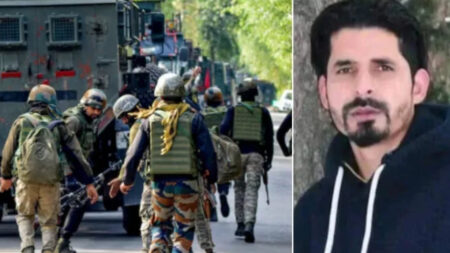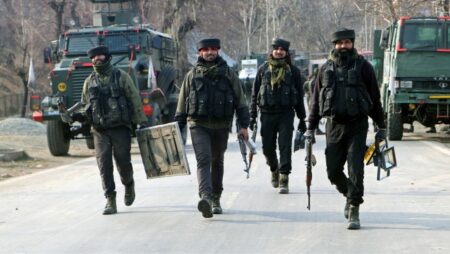According to official records, the train tragedy resulted in more than 900 individuals getting injured, with over 100 of them currently receiving medical treatment at SCB Medical College and Hospital in Cuttack, as well as a few private hospitals in Bhubaneswar.
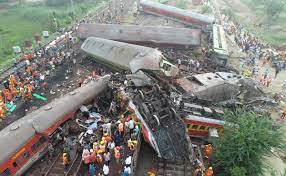
On Friday, a 22-year-old migrant laborer from Gopalganj district in Bihar, who suffered severe injuries in the train tragedy that occurred on June 2 at Bahanaga Bazar station in Balasore district, Odisha, sadly succumbed to his injuries. This unfortunate event has raised the death toll to 290.
Prakash Ram, a migrant laborer from Pathra village, has been identified as the deceased individual. He sustained severe injuries while onboard the general coach of the Yeshwantpur-Howrah Express. The train derailed and fell into a ditch after being struck by the derailed bogies of the Chennai-bound Coromandel Express on the evening of June 2.
After being admitted to a district headquarters hospital in Balasore, Ram was subsequently transferred to the surgery ward of Srirama Chandra Bhanja (SCB) Medical College and Hospital in Cuttack. His left leg below the knee was amputated by doctors, and they also performed surgery on his left arm, which had multiple fractures.
During an interview with reporters on Friday, Pramila Devi, the mother of Ram, expressed that her son began vomiting before his passing. She shared the distressing news that Ram was the sole breadwinner of the family, as his father is mentally unstable. She expressed deep concern about how they would manage to sustain themselves in the future.
Authorities have confirmed that Ram’s body will be released to his family following the completion of the post-mortem examination. As per official records, the train tragedy has resulted in injuries to more than 900 individuals, with over 100 of them currently undergoing treatment at SCB Medical College and Hospital in Cuttack, along with a few private hospitals in Bhubaneswar.
Currently, the identities of 81 preserved bodies at the All India Institute of Medical Sciences in Bhubaneswar have not been determined. Those claiming the bodies are awaiting the results of DNA tests.
The rail crash on June 2, which is the deadliest in India in over two decades, has resulted in the tragic loss of 290 lives. Authorities have reported that out of the deceased, 208 bodies have been identified since June 2. However, due to multiple claims over certain bodies, the state government has made the decision to conduct DNA sampling. So far, 78 families have provided DNA samples as part of the identification process.
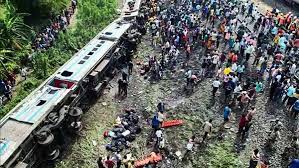
Days after Odisha train tragedy, many wait for DNA tests to get bodies
Bijender Rishidhar, a daily wage worker from Purnea, Bihar, took a loan to travel to Odisha upon learning about the demise of his 21-year-old son, Suraj Kumar, in the train tragedy that occurred on June 2.
His sole desire was to receive his son’s body at the earliest to perform the final rites and find some solace. On June 5, Rishidhar positively identified his son’s body (number 159) at the mortuary of Bhubaneswar’s All India Institute of Medical Sciences (AIIMS) using the Aadhar card discovered in Kumar’s wallet.
Rishidhar’s prolonged wait continues even after a week has passed. The authorities have been waiting for the DNA test results before handing over his son’s remains to him. Expressing his frustration, Rishidhar shared, “Initially, we were informed that the DNA test results would be available within 48 hours, and I could then claim my son’s body.
However, the timeline was extended to two days, then five days. Now, more than a week has gone by, and there is uncertainty regarding when the results will be available. As a daily wage worker, I had to borrow money for my journey to Odisha. I have not been able to earn a single rupee in the past week.” Rishidhar, along with about a dozen others, has been staying at a private guest house near AIIMS during this time.
Ajit Kumar, hailing from Begusarai in Bihar, has been anxiously awaiting the arrival of his brother, Sujit Kumar’s body since June 6. Ajit firmly believes that body number 27 in the AIIMS mortuary is that of his brother, as it bears a tattoo of Mahakal and has distinct features like a longer thumbnail. However, despite his identification, he has been kept waiting for the DNA sample test since June 6.
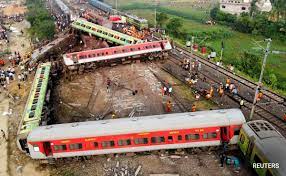
Pravash Ranjan Tripathy, an anatomy professor at AIIMS, explained the complexities of the process, citing various factors, including the quality of DNA extracted from the bodies. He mentioned that they have sent 75 samples to Delhi for testing, but the results would likely take at least 10 to 15 days.
There is also uncertainty regarding the number of samples that will yield positive matches. Tripathy noted some instances where samples were taken from uncles and nephews instead of the required first-degree relations like fathers, mothers, or siblings, which could impact the accuracy of DNA matching. First-degree relations generally yield higher matching accuracy in DNA tests.







